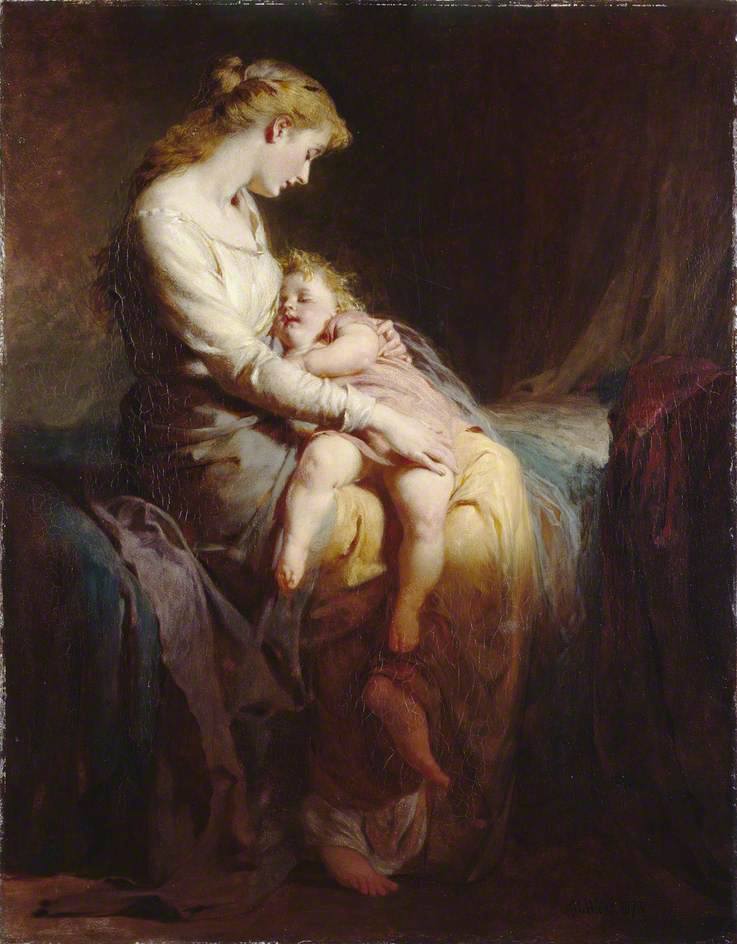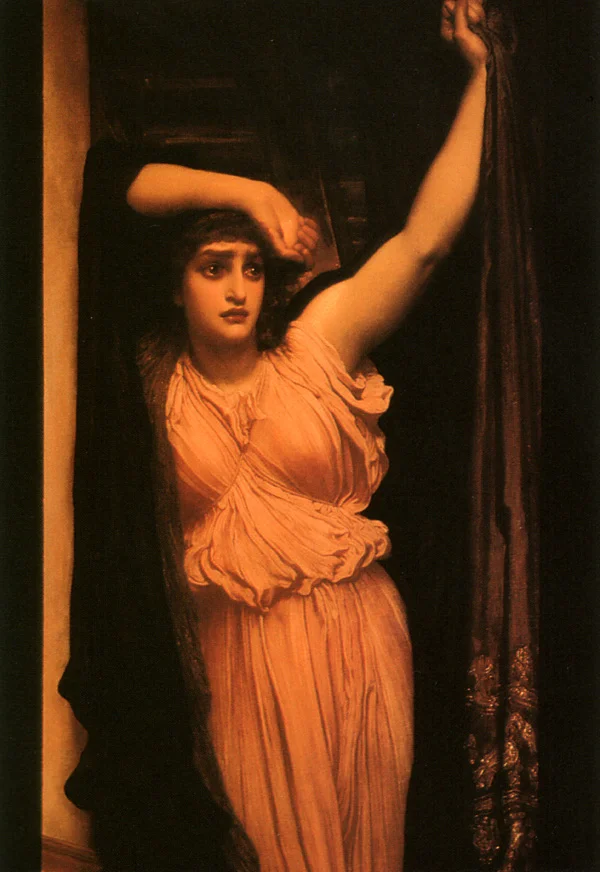Hubert von Herkomer, Clematis
A quiet middle-aged man falls in love with a beautiful but strangely childlike young woman.
Mary St. Leger Harrison (1852-1931) was the daughter of novelist and reformer Charles Kingsley. Under the pseudonym Lucas Malet, she wrote some 16 novels beginning in 1882; this one, amid more commentary on the human condition than might seem altogether necessary, presents vivid characters in helpless conflict.
“In these days of hurried workmanship it is a welcome contrast to encounter a story which combines imagination, observation and finish in such a high degree. This is no sketch, but a whole gallery of portraits which have not suffered from the author’s elaborate method, but only gained in lifelikeness”; even if “the author, especially in her moralizing moods, is too uniformly, and perhaps consciously, clever.” Athenaeum, June 6, 1885
The novel’s style has “a quiet self-confidence and reserved power”; the author is “vivid and effective in her descriptions, and telling in her portraitures”; but “there is a morbid strain running through it; one is tempted to ask whether the imagination which conceived and executed this book has not a touch of inflammation.” Literary World, July 11, 1885
“It is poignant, grievously pathetic, a fateful, disheartening book, but it is unquestionably clever. . . . Everything in ‘Colonel Enderby’s Wife’ is clever--the talk, the author’s pessimistic reflections, the arrangement of incident . . . and above all the delineation of character.” Westminster Review, October, 1885
Download this week’s novel:
http://solo.bodleian.ox.ac.uk/OXVU1:LSCOP_OX:oxfaleph014443744










![John Constable, View at [73 Across]](https://images.squarespace-cdn.com/content/v1/599082a2e58c6284b2a19d1a/1519335001662-T5Z94KU8PVGVYRTQOCZS/John+Constable+-+View+at+%5B73+Across%5D.jpg)









